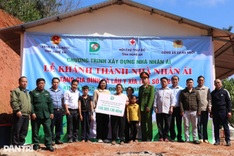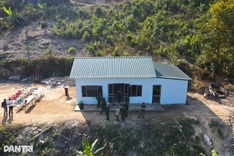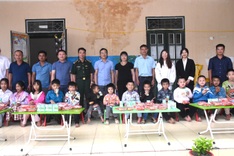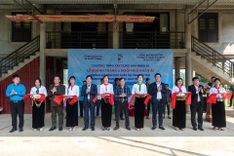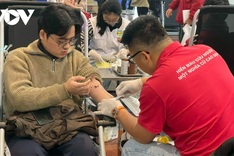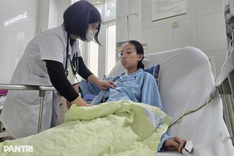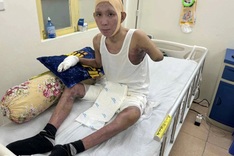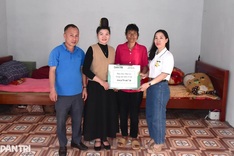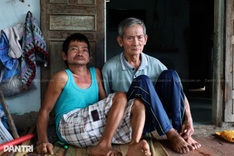Two men in the central highlands city of Pleiku are moving people to tears when trying to help aborted fetuses have a new resting place.
 |
| Phung (L) and Le work at the cemetery 363 days a year |
 |
| More than 12,000 aborted fetuses have been buried here |
For over 7 years, people coming to Pleiku Cemetery have been familiar with two middle-aged men who work as guards there. Phung, 40 years old, and Le, 44, are not just taking care of the tombs here; they have been building a resting place for 120,000 aborted fetuses.
They talks about this voluntary job with modesty: "We only do what we think we should do."
Phung recalls the first time he saw some plastic bags containing smelly fetuses being thrown at the cemetery gates.
“I was then really shocked but then I thought I must bury them,” he said. “Luckily Le agreed with my work. Sometimes we did not have enough money to buy coffins and had to use small incense burners or flower vases to put them in but then we were supported by a kind man who knew about our work. He supplied small coffins to us.”
By now Phung has arranged burial places for more than 5,000 aborted fetuses.
“Sometimes we are woken up at midnight by a phone call informing of an aborted fetus and we have to leave immediately,” Le added. “Today, I have made five trips to the city to bring remains to this cemetery. In this cold weather, we must always hurry so as not to let them become cold.”
Whenever receiving an aborted fetus, they carefully clean it with rice wine, wrap it up in a clean white cloth and put it in a small glazed terra-cotta coffin while praying for it. All this is done in 10 minutes.
“Many times we burst into tears when seeing an aborted. Some have grown to be a beautiful baby of over 2 kilograms,” he said.
The two men share that they work 363 days a year except for two days off on the 1st and 2nd of the lunar Tet festival.
Although known for doing great work, the two men are still having to struggle to make ends meet with the modest income from the guard work they do. But when asking about their wish, Le says that his only wish is to be able to reduce the abortion rate.
“We’ve sent our phone numbers to hospitals and maternity wards so that they can call us when there is an abortion and we can arrive timely to persuade their parents to keep their child,” he said. “We even have to promise to support them until they give birth, and help raise their children.”
“By now we have saved and adopted 6 children or sent them to orphanages”.
“We are happy to see less abortion cases recently,” Phung smiles. “Some years ago, sometimes we received 20 fetuses a day, but now the number is around 4-10”

